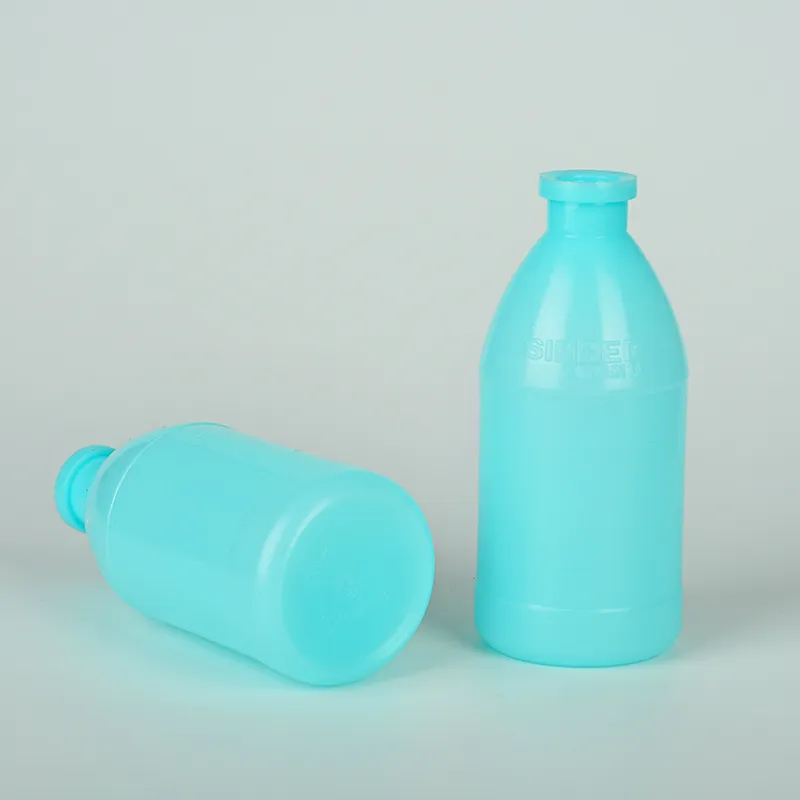Exploring the Importance of Medicine Vials in Healthcare and Pharmaceutical Supply Chains
The Significance of Medicine Vials in Healthcare
Medicine vials are small containers, typically constructed of glass or plastic, designed to hold liquid medications in controlled environments. These indispensable tools in healthcare serve various purposes, bearing essential information and promoting safe and effective medication administration. From hospitals to pharmacies, understanding the significance and functionality of medicine vials is crucial for both healthcare professionals and patients.
One of the primary roles of medicine vials is to preserve the integrity of the medications contained within. The materials used in the construction of these vials, such as borosilicate glass or high-density polyethylene, are chosen for their ability to resist chemical interactions. This is particularly important, as drugs can be sensitive to light, temperature, and moisture. By protecting medications from these environmental factors, vials help ensure that the efficacy of the drugs remains intact until they are needed by the patient.
In addition to physical protection, medicine vials also play a vital role in conveying important information. Each vial is typically equipped with labels that contain critical details, such as the name of the medication, dosage instructions, expiration date, and batch number. This labeling is essential for patient safety, as it helps avoid medication errors—one of the most common issues in healthcare settings. Mislabeling or incorrectly administering medication can have severe consequences, making the clarity and accuracy of information on medicine vials paramount.
Moreover, medicine vials are designed to support various forms of medication administration. For instance, some vials come with integrated syringes or dropper mechanisms, allowing for precise dosing. Meanwhile, others may be designed for multidose usage, letting healthcare providers extract multiple doses while maintaining sterility. The versatility of vials makes them suitable for both inpatient and outpatient settings, accommodating treatments ranging from acute hospital care to chronic home medication management.
medicine vials

However, the rise in injectable therapies has also led to new challenges concerning the safe handling and disposal of medicine vials. With increased awareness of the potential risks associated with sharps and waste management, the healthcare industry is continuously seeking innovations in design and materials. For example, some manufacturers are developing vials that are easier to recycle, further promoting environmentally friendly practices within the healthcare sector. Additionally, the use of safety-engineered vials and containers reduces the risk of accidental needle sticks, enhancing the overall safety of healthcare personnel.
The importance of medicine vials extends beyond clinical settings; they also play a key role in the pharmaceutical supply chain. The proper transportation and storage of vials are critical to maintaining the cold chain for temperature-sensitive medications, such as vaccines and biologics. Temperature excursions can lead to reduced efficacy and compromised patient safety. Thus, pharmaceutical companies and distributors place significant emphasis on the use of validated packaging systems to track temperature fluctuations during transit.
Furthermore, the ongoing advancements in medication delivery systems, such as pre-filled syringes and smart vials, highlight the evolving role of medicine vials in modern healthcare. These innovations aim to enhance patient compliance, simplify administration, and reduce the chances of dosing errors, while still maintaining the original purpose of protecting and preserving medications.
In conclusion, medicine vials are a fundamental component of the healthcare system, serving not only as containers for pharmaceuticals but also as critical tools for patient safety and medication management. Their design and functionality are integral to preserving drug efficacy, ensuring accurate dosing, and promoting safe practices within the healthcare environment. As the industry continues to evolve, the significance of medicine vials remains steadfast, solidifying their role in the delivery of effective healthcare solutions.
-
Aesthetic Makeup Spray Bottles | Fine Mist Empty RefillableNewsAug.19,2025
-
White Plastic Veterinary Vaccine Vials | Lab Liquid BottlesNewsAug.18,2025
-
Plastic Medicine Liquid Bottle: Secure Flip Top Drug VialsNewsAug.17,2025
-
Durable 250ml Blue Plastic Vaccine Vial for Lab & Vet UseNewsAug.16,2025
-
Sterile Virus Sample Tubes: Secure & Reliable Specimen CollectionNewsAug.15,2025
-
White 250ml Plastic Vaccine Vial for Lab & Vet MedicineNewsAug.14,2025
























